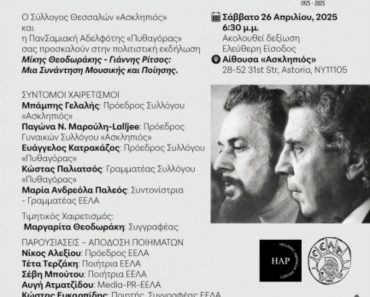
Few figures in Ancient Greek literature have been as consequential and enigmatic as Apollonius of Rhodes.
Born around 295 BC, this poet of the Hellenistic period was, above all, a scholar who dared to change epics significantly, generating works that linked the classical beauty of Homer with the intellectual trends and styles of his tumultuous time. His magnum opus was the work titled “Argonautica.”
This introduced us to the myth of Jason and the Argonauts, presenting a revolutionary approach to telling Ancient Greek myths. Apollonius of Rhodes’s innovative approach inspires writers, filmmakers, and artists today.
Who was Apollonius?
Apollonius lived during the Hellenistic period, a time in history when the newly-born city of Alexandria was the intellectual and academic heart of the Mediterranean world in the post-Alexander years.
As the director of the Library of Alexandria, Apollonius of Rhodes was deeply influenced by Homer and his magnificent works. Nonetheless, he challenged the strict boundaries of tradition, refusing to imitate and copy.
His work “Argonautica” consists of 6,000 lines, and he reimagines epic poetry, adjusting it to his era. Unlike the larger-than-life heroes that were the core of Homer’s works, Apollonius presents Jason as a flesh-and-blood human—a flawed and incredibly vulnerable protagonist. Jason is a leader who struggles with doubt and relies on others to succeed, as we all do.

The poem’s most important innovation was how it portrayed Medea and her true love for Jason. Apollonius focused on her psyche and internal struggles and dilemmas, employing narrative techniques like interior monologue, which are prevalent in many lyrical works today. This focus on emotions and normal human reactions was a clear differentiation from the divine-centric epics of earlier eras. Consequently, Apollonius received both praise and criticism from his contemporaries.
It is understandable why Apollonius of Rhodes and his groundbreaking techniques were initially met with mixed reviews. There are stories about how he fled Alexandria in disgrace, as some of his contemporaries disagreed with him and his approach because they couldn’t comprehend why he would change centuries-old literary traditions.
Despite this backlash, “Argonautica” eventually became a cornerstone of Greek literature and revolutionized how ancient tales could be told. Roman poets, such as Virgil and Ovid, drew inspiration from the style and themes Apollonius of Rhodes employed, passing his methods to future generations and making them broadly acceptable.
The importance of Apollonius’ works is evident to this day. The 1963 film “Jason and the Argonauts” brought this timeless story to life for a new generation, despite doing some diversions from the original text. Even comic books have adapted his fascinating internal monologue style, proving that great storytelling knows no time limits.

And let’s not forget Medea—her fiery passion and tragic love for Jason have inspired countless adaptations in theater and literature. If you’ve ever found yourself rooting for an antihero or empathizing with a morally complex character, you might owe some gratitude to Apollonius Rhodes’ revolutionary exploration of human nature.
Apollonius of Rhodes was a great scholar
Beyond his significant contributions to ancient Greek literature, Apollonius was a dedicated scholar too. As the head librarian at Alexandria’s prestigious library, he created some monographs (in-depth scholarly books) on Homer’s “Iliad” and “Odyssey.” With these academic works, Apollonius challenged Zenodotus’s earlier interpretations. Zenodotus of Ephesus was the first librarian of the Library of Alexandria and the earliest known editor of the “Iliad” and the “Odyssey.” He deleted lines he considered unnecessary and reorganized the texts into 24 books each. However, Apollonius challenged his editorial choices.
His other works included epigrams and city-foundation poems titled “Ktiseis.” Unfortunately, most of these works are lost.

One interesting anecdote about Apollonius of Rhodes suggests that he was sent into exile in Rhodes. However, this was more a clever act of self-promotion rather than a humiliating twist in his academic career.
Following the backlash he received in Alexandria for his initial presentation of the “Argonautica”, Apollonius fled to Rhodes. There, he improved his work, becoming very popular among the locals. The Rhodians honored him with official citizenship and he began signing his works as a Rhodian rather than an Alexandrian. This made Apollonius a popular figure, elevated his reputation, and demonstrated that leaving one’s homeland can sometimes lead to greater appreciation elsewhere.
His eventual return to Alexandria saw him appointed head of the Library of Alexandria and becoming a royal tutor, marking a triumphant comeback for a man who knew how to shake things up.







